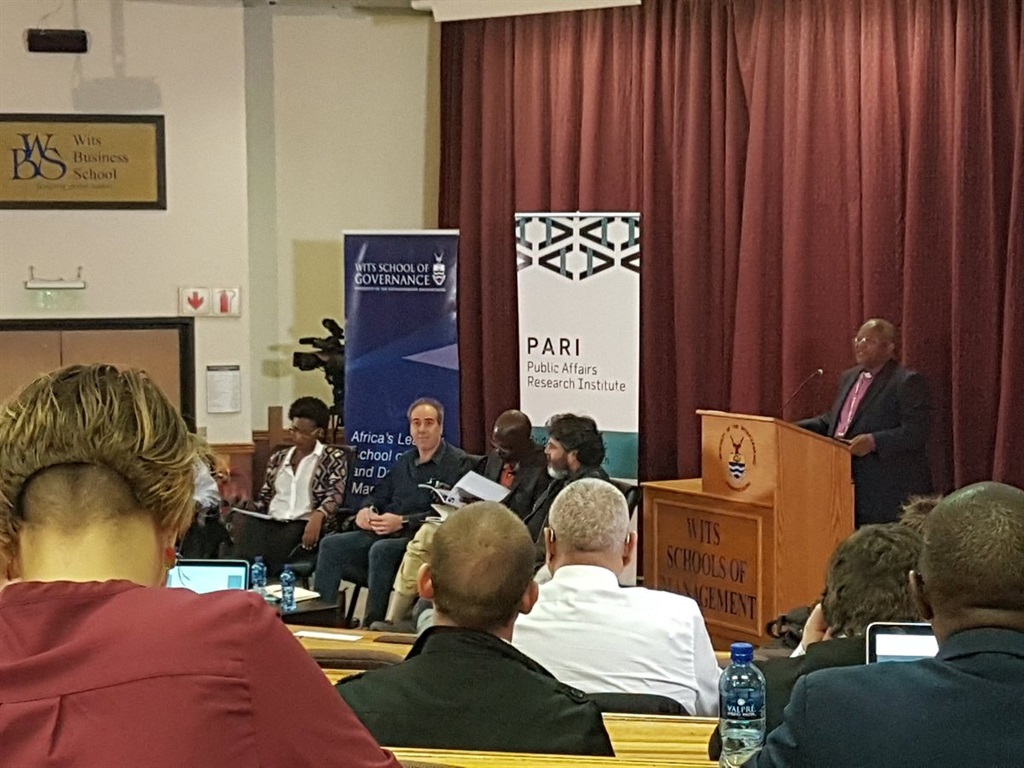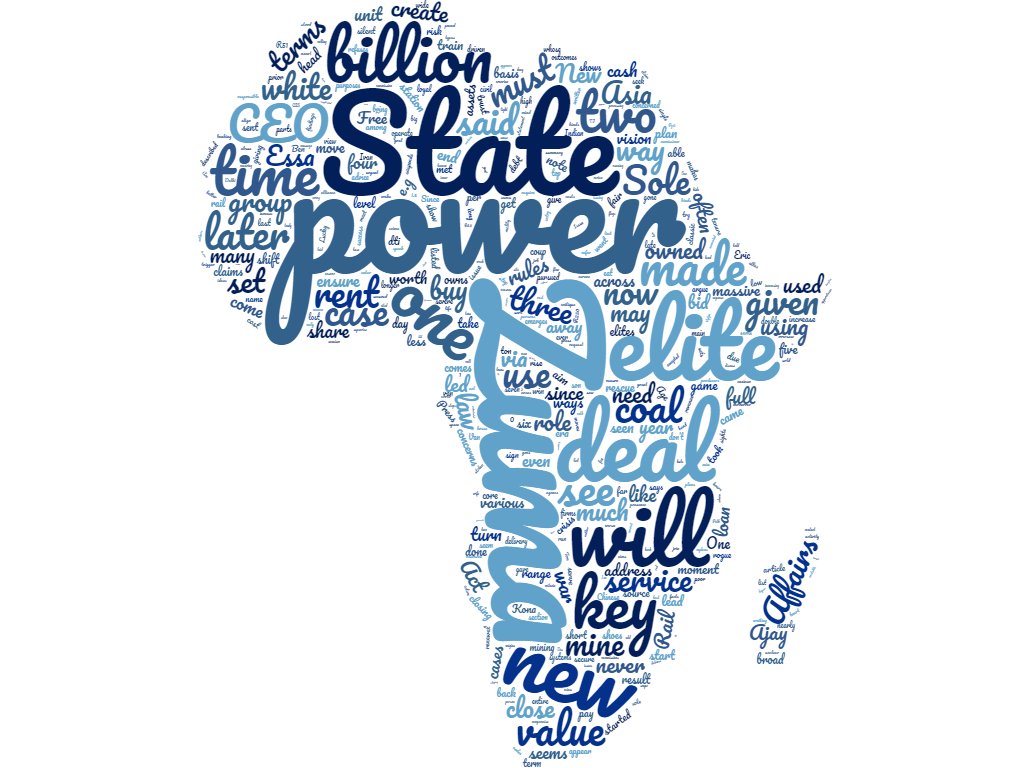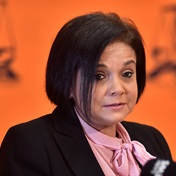
It was standing room only at the Donald Gordon auditorium at Wits University’s School of Governance last night, at the release of an extraordinary report into state capture.
Packing the auditorium was the coalition of the angry and the affronted. In the front rows were seated prominent actors in the war on state looting: former deputy finance minister Mcebisi Jonas, to whom the Gupta brothers famously offered R600 000 in cash and an additional R600 million if he accepted the finance minister position and “worked” with them; former acting South African Revenue Service commissioner Ivan Pillay, sacked a short while after telling President Jacob Zuma his tax affairs were to be investigated; Neeshan Balton, the head of the Ahmed Kathrada Foundation who led the charge against Zuma at the struggle icon’s many memorial services; Bishop Ziphozihle Siwa of the SA Council of Churches, which released the findings of their own Unburdening Panel last week; and, predictably, Sipho Pityana, the force behind SaveSA and the voice of a nascent citizen’s movement Zuma is finding difficult to ignore.
The report, titled Betrayal of the Promise: How South Africa is being stolen, details the extraordinary story of the establishment of a parallel shadow state alongside South Africa’s constitutional democracy, a deliberate political project of Zuma and his cronies to loot the state and state-owned companies to enrich themselves and their acolytes under the guise of radical economic transformation.
It was clear from the findings of the report that the ANC can no longer claim to be the centre of power.
“This report suggests South Africa has experienced a silent coup that has removed the ANC from its place as the primary force for transformation in society ... Resistance and capture is what South African politics is about today,” the report opens.
The report, authored by academics from the universities of Stellenbosch, Cape Town, Witwatersrand, and Johannesburg, also found that there is a “political project at work to repurpose state institutions to suit a constellation of rent-seeking networks that have been constructed and now span the symbiotic relationship between the constitutional and shadow state. This is akin to a silent coup.”
The report details how the Constitutional state, for which citizens voted, is being eroded and subverted through a concerted campaign which has involved breaking down institutions such as Sars, the Hawks – which has simply not investigated cases of corruption against protagonists in the state capture project – and state-owned companies that have redirected their “procurement spend” to favour the Gupta-Zuma network of brokers.
In addition, it states that Cabinet has been “hollowed out” and replaced with a series of “kitchen cabinets” of Zuma in which power rests, not in the executive or in Luthuli House.
The academics who authored the study – in a record-breaking eight weeks considering academics’ usual glacial working pace – had uncharacteristically harsh words for Zuma and his African National Congress in their speeches at the report’s launch.
Academic language, ordinarily couched in caveats and vagaries, was replaced with definitives.
Professor Mzukisi Qobo, member of the South African Research Chair on Diplomacy at the University of Johannesburg, was especially harsh during his explanation of the mechanics of state capture.
“At the base of the state’s criminal enterprise there are dealers and money laundering networks. This is why the Financial Intelligence Centre Amendment Act sat with Zuma for over two years,” he charged. “Zuma is a great security threat to the majority of South Africans.”
Qobo also referred to Zuma’s government as not so much a “few rotten apples” as “an accursed orchard”. About the ANC, which he said was “actively acting against the grand objectives of the Struggle”, he said it was “a fundamental mistake to see the ANC as driver of transformative change. It has robbed future generations”.
The academics repeatedly stressed that the concept of radical economic transformation was absolutely necessary for the country, but not in the way it was currently being practised by Zuma and his allies, the Gupta family.
Said Qobo: “The dreams of blacks have been betrayed. This iteration of radical economic transformation is perverse as it advances pillaging.”
Wits vice-chancellor Adam Habib added that “even though it’s a political project, it’s very clear that looting is happening”.
And as the country and opposition parties move towards 2019, it was important not to repeat the mistakes of the past. Habib cited as an example the SACP’s delight after the ANC’s Polokwane leadership conference at which Zuma was elected leader of the party.
Asked how they could work with someone with almost 800 charges of corruption hanging over him, “the SACP justified their alliance with Zuma as rather the devil you know, and said we can marshal him on right path. But the SACP got marshaled!”
Although the report is an analysis of the work of a number of journalists and media organisations, there is, the academics said, evidence of wrongdoing which can be tested in court.
“There are systematic acts of law breaking,” said Qobo. “[Eskom chairperson] Ben Ngubane should go to jail. [Eskom chief executive] Brian Molefe must go to jail, as well as [Transnet chief finance officer] Anoj Singh.”
The research convenor, Professor Mark Swilling of the Centre for Complex Systems in Transition at Stellenbosch University, said this was the first of a number of similar reports that they intend publishing.
“We have new stories that journalists have not yet broken. We need to find a way to tell those stories,” he said. “We need to pull together at case level what’s been going on at state-owned entities such as [rail agency] Prasa, [airports company] Acsa, and Transnet.”
Sithembile Mbete, a political science lecturer at the University of Pretoria who also sits on the board of Corruption Watch, said the “saddest thing about [the report] is how weakened and undermined our state is”, a state which took in the Mandela years a lot of effort to build.
“It’s very easy for political parties to be captured and manipulated. We need a new moral centre that is not reliant on any political party. We need a new political consensus not reliant on the ANC to survive. We’ve outgrown the ANC. We need a new centre – not Luthuli House,” she said.




 Publications
Publications
 Partners
Partners










